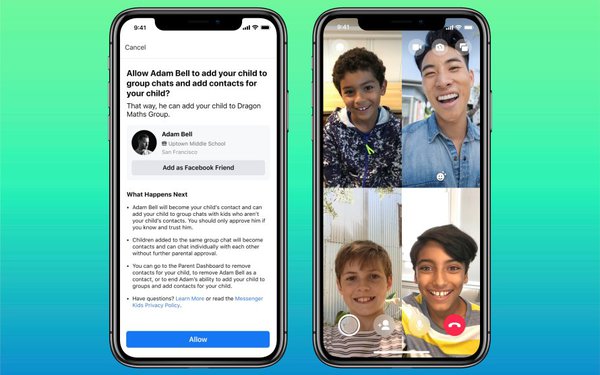
With Zoom now claiming more than 300 million daily
participants* for its video-conferencing services, Facebook wasn't about to sit back and let a competitive tech company monopolize the booming video conferencing services sector.
On
Friday, Facebook unveiled Messenger Rooms.
Like Zoom, Houseparty and other popular platforms, Rooms is designed to serve as a virtual space for people to connect and hang out. But unlike other
services, Rooms is free. Also, it can accommodate groups of up to 50 people at a time.
Along with several other video updates, Rooms is designed to “help bring people closer together and help us all feel more
present with the people we care about during this [coronavirus pandemic] period,” Facebook CEO Mark Zuckerberg said on Friday.
advertisement
advertisement
For
Facebook, however, Rooms is also part of a long-term strategic shift toward more direct messaging services.
Along with medical face masks and hand sanitizers, demand for
video-conferencing services has skyrocketed as a result of the pandemic.
Zoom has seen daily active users explode from an average of 10 million to 200 million in recent months.
At the end of March, Microsoft said its Teams
collaboration platform set a new daily record of 2.7 billion meeting minutes -- obliterating the record of 900 million set just two weeks earlier.
As Rooms rolls out over the coming days and
weeks, Facebook users will be able to start a “room” for any activity, then send anyone a link to that room, whether or not they have a Facebook account.
“You’ll be
able to create rooms and invite people across WhatsApp, Instagram and Portal, as well,” Zuckerberg said Friday.
At the top of its News Feeds, Facebook also plans to alert users to Rooms
currently being hosted by other people within their network. “You don’t need to schedule time to hang out like other video conferencing tools,” Zuckerberg said.
After testing
Rooms in a few countries, Facebook plans to roll it out globally over the coming weeks.
Facebook is already well equipped to support video calling among its vast user base. Between WhatsApp
and Messenger, the social giant already helps more than 700 million users make video calls daily. In addition, the company said the views of Facebook Live and Instagram Live videos have increased
significantly since March.
Messenger boasts approximately 1.3 billion monthly active users, according to Statistica.
Like Messenger proper, Rooms will let participants play with AR
effects, and newer AI-powered features like immersive 360 backgrounds and mood lighting.
When users create a room, they determine who joins in. Users who create rooms will also have the power
to remove any participant they please. And, they can lock their room at any time, so no new participants can join.
*"Participants" include people who participate in multiple daily meetings,
as opposed to daily active users, who can be counted only once per day. Zoom has not released information on its DAUs.